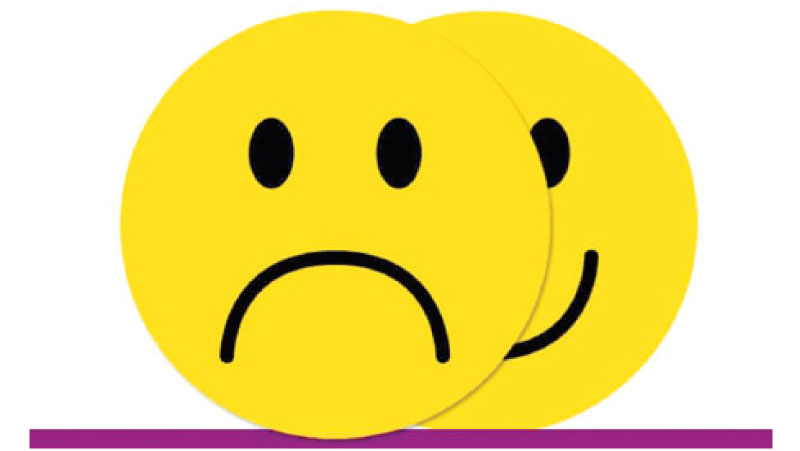Sitting in a corner sobbing may not be everyone’s idea of a great start to the year, but learning how to feel your sad emotions could be the key to a happier 2021. People who cry typically experience fewer “negative aggressive feelings”, such as rage and disgust, than people who don’t, according to research from the University of Kassel in Germany in 2009. Similarly, a 2010 study from Indiana University Bloomington found that American footballers who cried reported higher levels of self-esteem, and were less concerned about peer pressure than their non-crying counterparts.
“We now know that crying is something all humans are programmed to do, and that tears serve a purpose,” says Ad Vingerhoets, an academic known as the “tear professor” from Tilburg University in the Netherlands. “Cortisol levels decrease in those who cry, since expressing sadness soothes us.” This is because sadness has a function. In numerous studies since the 1980s, researchers from the University of New South Wales have found that accepting and allowing for temporary sadness helps improve attention to detail, increases perseverance, promotes generosity and makes us more grateful for what we’ve got.
Aiming to avoid sadness or suppress negative thoughts can backfire. The Harvard University social psychologist Daniel Wegner led a thought experiment in 1987, where subjects were told not to think about white bears, inspired by the Russian writer Dostoevsky, who wrote: “Try to pose for yourself this task: not to think of a polar bear, and you will see that the cursed thing will come to mind every minute.” Wegner found that participants routinely thought about the thing they were attempting to avoid; further studies confirmed that thought suppression is futile, as well as exacerbating the very emotions we’re hoping to swerve.
Having spent the past eight years researching happiness worldwide, I began to notice that many of the people I met were so obsessed with the pursuit of happiness that they had become phobic of feeling sad. I’d speak to people who had just lost loved ones and they would ask: “How can I be happy?” I’d meet people who’d recently been made redundant, or homeless, or had a bad breakup, who’d still ask:“Why aren’t I happy?” I’d try to explain that, sometimes, we need to be sad. Sadness is what we’re supposed to feel after a loss, and sorrow is the sane response when sad things happen. After a year in which all of our lives have been rocked by a global pandemic, for instance, it’s OK to feel sad. But many of us have been conditioned to be so averse to “negative emotions” that we don’t recognise them, much less acknowledge them or give ourselves permission to feel and process them. This can be isolating for those experiencing sadness and baffling for those trying to help loved ones through pain.
Fortunately, there are strategies that help, such as allowing time, managing our expectations, getting some perspective and engaging with culture – putting down our smartphones and sitting with sadness when it comes. We shouldn’t apologise for our feelings or numb them with excesses (alcohol, drugs, shopping; whatever our crutch of choice) or deprivation (controlling food intake is a common unhealthy coping strategy in times of pain). To be sad better, we need to get active outdoors, daily – if only for a 20-minute walk.
There’s also much to learn from cultures where people are more in touch with their emotions – “good” and “bad”. In Bhutan, for example, crematoriums are located centrally, so children grow up with the idea that loss and death are inevitable. The Portuguese and Brazilians have the concept of saudade – meaning a melancholy for happiness that once was, or even the life we merely hoped for. The Chinese concept of xingfu is often translated as “happiness” in English but actually refers not to a good mood, but a good life: one that is sufficient, sustainable and has meaning. It isn’t necessarily an easy, pleasant existence (in fact, the Chinese character for xing represents torture).
Life may be hard, but it will have meaning. And it’s this that should be the goal: a life experiencing our entire emotional spectrum. Sadness is going to happen, so we may as well know how to “do it” right.
-Guardian.co.uk


